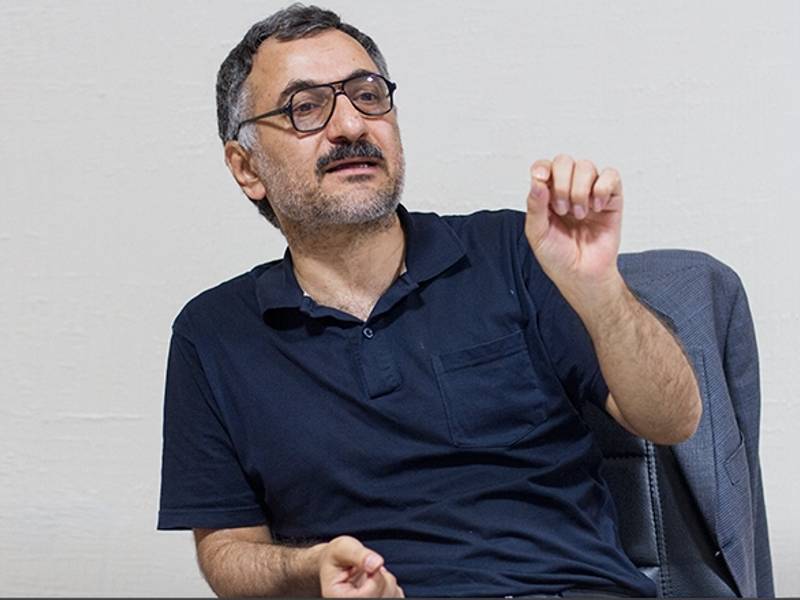Saeed Laylaz, an Iranian 'reformist' commentator, warned that Iran might "test its first atomic bomb" in case the United States or Israel retaliate for the early Sunday missile and drone attack targeting Israel.
His comments contrast with the official Iranian position for years arguing that Tehran's pursuit of nuclear technology is for "purely peaceful purposes."
Laylaz, an economist, journalist, and professor at Shahid Beheshti University in Tehran, claimed the statement is a "clear warning to Americans." He also underlined the fact that “Iran’s hands are never tied when it comes to national security issues."
His comments are far distanced from the regime’s repeated assurances to the world, anchored in the "nuclear fatwa" of the Supreme Leader, that Iran has no ambition to make nuclear weapons.
"We believe that besides nuclear weapons, other types of weapons of mass destruction such as chemical and biological weapons also pose a serious threat to humanity. The Iranian nation … feels more than any other nation the danger that is caused by the production and stockpiling of such weapons… We consider the use of such weapons as haram [forbidden] and believe that everyone must make efforts to secure humanity against this great disaster,” Khamenei said in a statement to the nuclear disarmament conference in 2010. However, many argue that this was not a fatwa, but a statement by a head of state.
The fatwa has been one of the central elements of Iran's defense, especially in its nuclear diplomacy, and most notably during the negotiations of the Joint Comprehensive Plan of Action (JCPOA) from 2013 to 2015.

